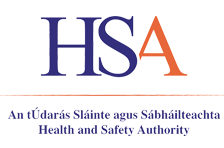Detergents
Irish companies importing detergents from Great Britain i.e. England, Scotland and Wales, should be aware of their obligations under the Detergents Regulation (EC) No. 648/2004 covering the manufacturing, labelling, placing and making available on the market and use of detergents.
Implications for Irish companies sourcing detergents directly from Great Britain since 1 January 2021
As of 1 January 2021, a supplier of detergents based in Great Britain (GB) is non-EU based, with no role under the Detergents Regulation. Any Irish company who sources detergent products directly from GB is an EU detergent manufacturer (EU importer) and must take full responsibility for compliance of the products being placed on the EU (including the Irish) market.
Under the Detergents Regulation, the definition of a manufacturer covers both producers (formulators) and importers of detergents or a surfactant for a detergent. Manufacturers of such detergents/surfactants must be established in the EU and take responsibility for compliance of detergents/surfactants with the Regulation.
Ireland/Northern Ireland Protocol and the implications under the Detergents Regulation
Under the Protocol, the Detergents Regulation applies in respect of Northern Ireland meaning that detergent products traded between Northern Ireland and Ireland must comply with all the rules set out in the Detergents Regulation.
Specific details in relation to test reports and approved laboratories in Northern Ireland are provided in the Commissions Readiness Notice linked below
Responsibilities for manufacturers (importers) under the Detergent Regulation include:
- ensuring that detergent products are labelled & packaged correctly in accordance with the requirements of the Detergents Regulation, including the name or trademark of the EU based party responsible for placing the product on the market
- ensuring that an Ingredient Data Sheet is prepared and available on request from NPIC*
- ensuring that a list of ingredients is made available on website*
- ensuring that any surfactants used in the detergent are fully biodegradable, using an accredited laboratory approved by an EU Member State (see readiness notice)
- ensuring that consumer laundry and consumer automatic dishwasher detergents comply with the ban on inorganic phosphates as set out in Article 4a and Annex VIA of the Detergent Regulation.
*For industrial detergents which are not made available to the general public, the above-mentioned requirements do not have to be fulfilled if equivalent information is provided by means of technical data sheets, safety data sheets or similar.
Detergents with a biocidal action, e.g. disinfectants, sanitisers, containing biocidal active substances must comply with the Biocidal Products Regulation in addition to complying with the Detergent Regulation. The Pesticide Registration and Control Division (PRCD) of the Department of Agriculture, Food and the Marine are the responsible body for the Biocidal Products Regulation.
To note, from the 1 January 2021, the EU Detergents Regulation will be replaced in Great Britain by the Detergents (Amendment) (EU Exit) Regulations 2019, which retains the EU laws with respect to Detergents, therefore most regulatory requirements will remain the same. However, EU manufacturers/importers are responsible for, and so must ensure compliance of, all detergents received directly from GB before placing them onto the EU market.
To note, that importers of detergents must also ensure that, where relevant, products comply with the CLP Regulation with regard to classification, labelling and packaging.
Further information:
- HSA webpages on Detergents
- Guide for new importers under REACH
- HSA Chemicals Brexit Webinar and Q&As from webinar
- Flowchart of obligations under REACH, CLP & Detergents Regulations for an Irish distributor sourcing chemical products from UK (Great Britain) after 1st Jan 2021
- Commission webpages on Detergents
- Commission Readiness Notice on Detergents
- Commissions Stakeholder guidance on EU rules in relation to detergents
- HSA webpage on CLP & Brexit
- Information on biocides on DAFM webpages
- HSA/DAFM Information Sheet on Labelling & packaging requirements for detergents & biocidal detergents products
- Chemical Legislation Role Finder
